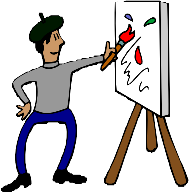
A relationship crisis can be one of the toughest challenges to face as a human being. In these moments, what you do can have effects that last for a lifetime. A troubled relationship is challenging enough and it can quickly worsen without the right tools and some expert guidance. After many requests from our clients and subscribers, I have put together a list of powerful steps you can take when encountering a relationship crisis.
While some of these recommendations are based on my own experiences in working with thousands of clients over the years, much of this information is based on years of research from the “relationship crisis” experts.
Maybe your relationship is on the edge or already has fallen apart. Maybe you’re romantic life is somewhat solid, but you keep encountering conflicts which seem to be worsening. Maybe you have recently been betrayed or you’re needs aren’t being met. Or maybe your relationship is healthily progressing, but you have concerns about what might occur down the road.
Whatever your situation, I encourage you to study the steps outlined below. Take some time to think of how you can apply them to your personal life:
1. Don’t Lose Sight Of The Big Picture In A Relationship Crisis
When we face a conflict in a relationship, it can be challenging to see anything other than the painful circumstance. For example, if an argument occurs over a week or even over a couple months, it can feel like the struggle is all that has ever happened. When this occurs, be careful not to give this fragmented piece of time too much power.
 If you are in an art gallery and you’re standing too close to a painting, focusing on just a small piece of the picture, you aren’t likely to see the beauty that’s there. But if you step back and see the entirety of the artist’s work, then everything seems to make more sense and the meaning of the painting emerges. To create lasting and fulfilling relationships, it’s often a matter of seeing the big picture rather than just a piece of the picture.
If you are in an art gallery and you’re standing too close to a painting, focusing on just a small piece of the picture, you aren’t likely to see the beauty that’s there. But if you step back and see the entirety of the artist’s work, then everything seems to make more sense and the meaning of the painting emerges. To create lasting and fulfilling relationships, it’s often a matter of seeing the big picture rather than just a piece of the picture.
Over the years, I’ve seen most clients give too much power to a 20 minute argument with a romantic partner, even when the relationship had a strong bond for many years. If you encounter a heated moment such as this, do your best to take a step back and see the bigger picture.
Remember all the good times you shared together, remember the bond that carried you though the most challenging times, remind yourself of the common interest you share, etc. I’ve seen numerous situations where couples went through divorces, brutal custody battles, restraining orders, and worse. And then six months down the road, guess what happened? After all the anger and hurt worked itself out, the couples were reunited
Based on the circumstances of these couples, I often question the number of couples that did not reunite for some ridiculous reason, even when they both wanted to be back together. The point is that no matter how bad or hopeless things may seem, there may be many different ways to view trouble in a relationship. Be careful about giving too much power to what has just occurred or what is occurring.
Be careful not to be unrealistic or too optimistic, but do guard against seeing the hard times as a sign that “it’s over.” The past and present do not always equal the future. Keep an open mind to what the future may hold for your relationship.
As you see the bigger picture, hopefully your actions will reflect this. In a heated moment, be careful what you say. Don’t make any final decisions or take any radical steps that you may regret later. Take a step back and give yourself some time to absorb and process what has happened. Powerful emotions will cloud our judgment, so be cautious during these moments.
2. In A Relationship Crisis, Put Your Focus Where It’s Needed
It’s easy to keep a positive focus in a relationship when circumstances are in our favor. For example, when you first meet someone, it’s easy to immerse yourself in all the things you like about them, how nice the new relationship is, and how exciting the adventures to come will be. When we encounter a crisis, all too often, our focus can shift to how bad things have been, how bad things are, what we don’t like about our romantic partner, things we may have given up or changed to be with them, etc. Regardless of how challenging it may be, these are the times when we have to monitor and control what we focus on.
For example, if you experience a deep betrayal in a relationship, but you still want to heal the situation and connect with your partner once again, you have to shift your focus from how bad things have been or how bad things are. Focusing on the challenges alone will only lead to more distance between you and your partner.
Instead, you have to shift your thinking to what the two of you have in common, what you cherish about this person, what you would miss if this person wasn’t in your life. And most importantly, you have to shift your focus towards solutions – what you can do to improve the situation. This could be better communication, seeing a counselor, taking steps to rekindle the passion, or learning true forgiveness.
3. Take Personal Responsibility
When the relationship seems to be failing, it’s often easier to focus on the faults, mistakes and behaviors of your partner. This is the most damaging error people make. Avoid the temptation of being “the victim” and instead, focus on your participation in the crisis. While others do play a part in our experiences, our feelings are a result of how we perceive a situation to be. Our pain comes from what we think about a situation, not just the situation itself.
You can’t control other people’s behavior, but you can control how you react to the circumstances in your life and how other people “make you feel.”
Whatever painful experiences you encounter, pay attention to what decisions you made and what actions you took that helped to create your present circumstance. Explore what steps you can take to get things going in the direction you want – explore a new way of thinking, learn how you can communicate more effectively and create better boundaries.
Personal responsibility is about acknowledging your participation in the situation so that you can learn from it and go on to make better choices. It’s not about blaming yourself and immersing yourself in guilt, regret, and self criticism. So, when you take personal responsibility, make sure to be kind to yourself. You are not at fault and you have the ability to respond in more constructive ways.
4. Work On Improving Yourself
 Often I have encountered clients, who, when faced with a relationship crisis, put all of their energy into fixing the relationship. Or even worse, they try to fix their romantic partner.
Often I have encountered clients, who, when faced with a relationship crisis, put all of their energy into fixing the relationship. Or even worse, they try to fix their romantic partner.
While certain steps surely need to be taken to fix or heal a crisis, most people fail to realize that the most important changes that need to occur are from within themselves. You may be aware that what is occurring to you on personal level in your life has a direct effect in your relationship. In fact, a relationship breakdown can often be a symptom of a deeper core issue within you that needs attention.
For example, work pressure, traumatic past experiences, relationships with other family members and past relationships all affect how you respond to conflict and pain. When a relationship is in trouble, it’s important to examine yourself to see what changes you need to make in your own life, the part of your life that exists outside of the primary relationship. Do you have a strong support group of friends that you can really be yourself around? Are you exercising regularly and eating a healthy diet?
Are you meditating or involved in training that helps you to control your emotions, thinking, and promotes spiritual growth? Do you have a career that is fulfilling, rewarding, and allows you to express your greatest talents? Is your life in balance?
These are the types of questions you need to ask yourself when facing a crisis in a relationship. Be honest with yourself, and examine where you have an imbalance in any area of your life, the next step is to take immediate actions to create a more balanced life. This could be finding a local group of people who take nature excursions; it could be signing up for a meditation or yoga class, or whatever else you need to do to make your improvements.
As you change, your relationship changes. By taking better care of yourself, you will likely notice this is the most critical step you can take to improve a crisis situation in a relationship. Of course, as the crisis heals, make sure to stay consistent with your “personal steps” so you don’t end up back in the same situation later down the road.
5. Use The Resources Available To You – Relationship Crisis 101
In Napoleon Hill’s classic “Think and Grow Rich,” he states that one of the most common traits of successful people is the ability to “seek the advice of experts” when times are tough. When a relationship challenge occurs, so many people try to unsuccessfully “do it on their own.”
If you had to go to court for a major lawsuit for a legal situation that could affect the rest of your life, would you represent yourself in court? As the old saying goes, a man who “represents himself has a fool for a lawyer.”
The same can be said when you reach a crisis in a relationship. Being independent is a sign of strength, but only to a certain point. Too much independence can be more damaging than empowering.
Consider expert help if you are encountering these types of situations:
You have to make a major decision in a relationship, a decision that will have lasting effects – depending on what challenge you are facing, this could be a decision to stay with or leave your romantic partner or decisions about how to communicate with them about a critical issue
You keep taking steps in the relationship, but you aren’t getting the results you want – there is likely a different strategy you could use that would allow you to get different results
The type of expert advice you seek is a personal choice. It could be a matter of picking up a book from Dr. Wayne Dyer or Dr. Phil at your local bookstore. It could be seeing a credible relationship therapist on regular basis.
Of course, if you are at a fork in the road and feel you need some direction, you may find my Intuitive Counseling service helpful. Thousands of people over the years have reported great success after having a session with me.
If you want effective and proven tools for controlling your thinking and emotions, understanding yourself on a deeper level, and developing your own intuition, I encourage you to look at the details of my Life Mastery Program.
Regardless of what steps you take, if you’re in a tight spot or what you are doing isn’t working, you will likely benefit from some type of expert advice. It’s very important that you take advantage of the resources available to you instead of trying to do it all on your own. This may be one of the most important decisions you ever make
When faced with a failure or a breakdown in your relationship, I encourage you to follow the steps I have outlined in this report. These actions may not be a miracle pill that will fix all your problems, because there are no one-size-fits-all magical solutions.
But, these are tested and proven strategies that have already worked for thousands of people, so chances are very good you can benefit too.
Take some time to contemplate what I have shared with you. Take out a piece of paper and write down some steps to take that apply to your own unique situation, and get started right away. And of course, if you have found this article insightful and helpful, make sure to pass it on to a friend or loved one. I wish you the best in life and love.




